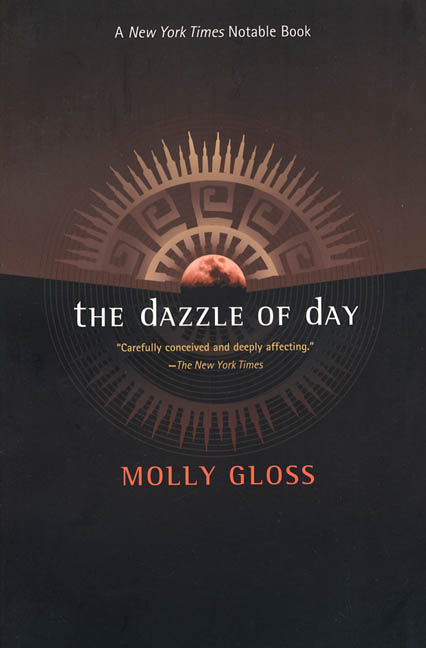The Dazzle of Day is an astonishing short novel about a generation starship.
There have been plenty of books set on generation starships by everyone from Heinlein to Wolfe, but thing that makes this stand out is how astonishingly real the characters are, and how well fitted to their world. Gloss has an immense gift for getting inside people’s heads. This story is about people both like and unlike us—they are culturally Quakers and they’ve been living on the ship for generations, which makes them very different, and yet they’re unmistakably people. They’re my favourite kind of characters, people I can understand and get inside their heads, and yet very different from the standard kinds of people you get in books. They’re very much individuals, not types, and they’re very much shaped by their culture and experiences.
The book opens with a piece of a memoir from a woman on Earth who’s considering going on the ship, then the middle section consists of the rotating points of view of an extended family a hundred and seventy-five years later as the ship is approaching a planet, then it ends with a piece of memoir from a woman living on the new planet a hundred years after that. The way they live, the expectations they have of family and work and decision making are all very unusual, but they take them for granted and so I absorb them naturally as I’m reading. The characters, whose ancestors came from Japan, Costa Rico, and Norway, speak Esperanto, and Esperanto is used in the text for a few words for things we don’t have, which gives it an unusual flavour.
This is only the second time I’ve read this, as I completely missed it when it was published in 1997. I think of a second reading of a book as completing my read, a first reading is preliminary and reactions to a first reading are suspect. I loved this book just as much the second time. It’s very well written and very absorbing. It isn’t a cheerful story though—thematically it’s about worlds and boundaries, and it’s about those things very much on a human scale. This very much isn’t a fantasy of political agency, one of the things it faces is the knowledge that change can be frightening, that responsibility can, but that the answer to that is not refusing to change or refusing to accept responsibility. I sometimes read something and think “I’d have loved this when I was eleven.” I’d have hated The Dazzle of Day when I was eleven, it’s all about grown-ups, it has a lot of older women as significant characters, and while being on the generation starship is essential to everything, everything that’s important is internal. But I love it now for those very things. If there’s an opposite of a YA book, this is it.
Jo Walton is a science fiction and fantasy writer. She’s published eight novels, most recently Half a Crown and Lifelode, and two poetry collections. She reads a lot, and blogs about it here regularly. She comes from Wales but lives in Montreal where the food and books are more varied.










